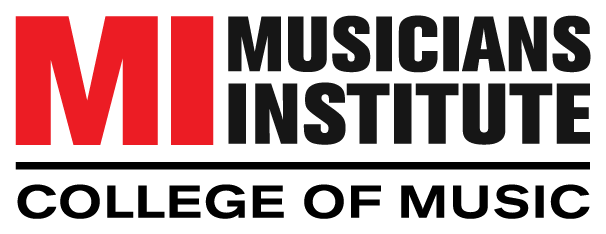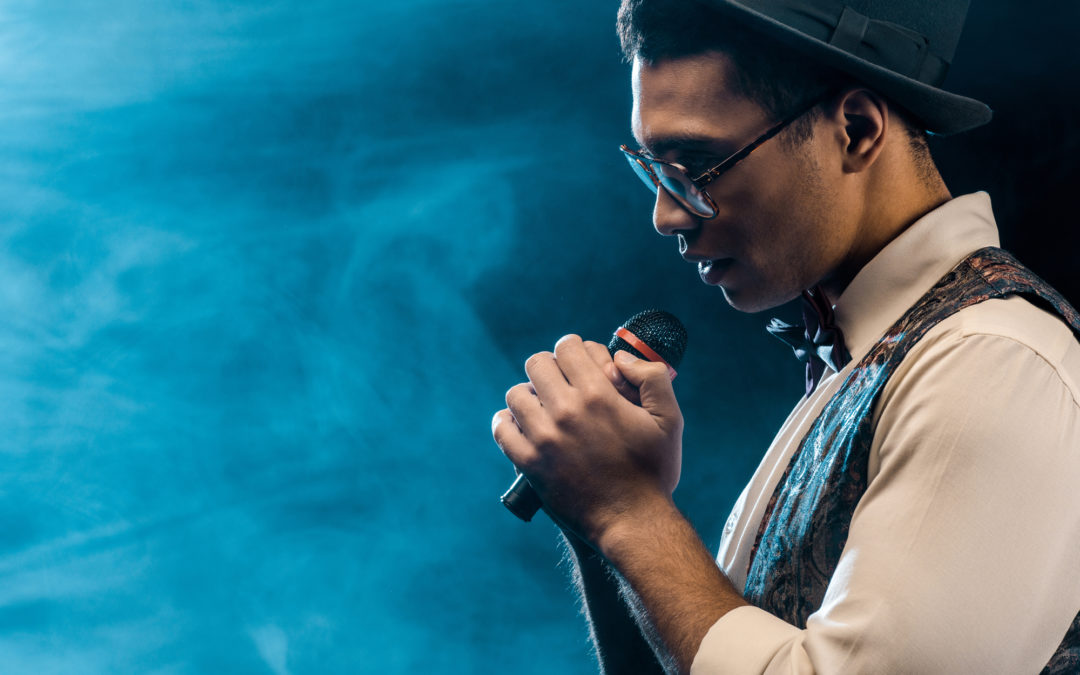Performance anxiety is common
Musicians commonly experience performance anxiety. As a musician, you are unlikely to avoid performance anxiety, and it will probably occur several times in your career. In other words: performance anxiety is part of being a performer.
It is not the end of the world. Let’s say you notice that you are driving your car above the speed limit, and so you put your foot on the brake and slow down. This is a typical situation when driving your car. Similarly, if you feel anxious before or during a performance, you just need to use your skills to bring yourself back on track.
You should develop the techniques that allow you to recognize that you are experiencing performance anxiety – like looking at your car’s speedometer – and then you need to develop strategies to overcome the inevitable anxiety – like putting your foot on the brake and slowing down.

Blog Post
"*" indicates required fields
By submitting this form, I authorize Musicians Institute (MI) to make or allow the placement of calls, emails, and texts to me at the phone number that I have provided, including through the use of automated technology, or a prerecorded or artificial voice. I understand that I am not required to provide my phone number as a condition of purchasing any property, goods, or services. I agree to the terms of MI’s Privacy Policy. MI will not sell or rent your information to third parties, and you may unsubscribe at any time.
You must be musically prepared
The most critical factor that will help you deal with performance anxiety is to be fully prepared. You must be confident that you have made every effort to prepare for the performance.
For a musician, this means that you have practiced performing your songs repeatedly until they are all second nature to you.
Learning how to overcome performance anxiety is not going to work if you haven’t put in the effort to be your best.
Recognizing the symptoms of performance anxiety
You need to recognize the difference between feeling anxious about your upcoming performance and feeling confident.
You may notice physical symptoms such as “butterflies in your stomach,” shallow breathing, or tense muscles.
Or you may notice psychological symptoms such as racing thoughts or an inability to focus and concentrate.
You will need to develop the skills to recognize how you are feeling at any given moment and to be able to decide whether you are calm and confident or whether you are suffering anxiety or a momentary panic attack.
In a nutshell, this is the process of checking your internal speedometer.
If you don’t already have the skills to do an internal health check – “How am I feeling now?” – then you should study techniques such as mindfulness.
Mindfulness (knowing what you are thinking or feeling at any given moment) is a relatively new concept in Western culture but has been popular in Eastern culture for thousands of years. This article from the University of Memphis Rudi E. Scheidt School of Music describes some of the basic ideas of mindfulness for musicians.
You can start to learn this technique by asking yourself, “What am I thinking at this moment? How do I feel at this time?”
Overcoming performance anxiety
The most natural way to deal with performance anxiety is to breathe deeply, slowly, and rhythmically.
You should practice this technique until it becomes a deeply ingrained habit – just like moving your foot from the accelerator to the brake.
You need to develop confidence that taking a few moments to breathe deeply and slowly will change your physiology (your heart rate, your blood oxygen levels, and your muscle tension) and, in turn, relax your mental state.
Once you have the confidence that your ‘breathing brake’ actually works, you can deploy it in any situation, including when you suffer performance anxiety.
You should become comfortable using the breathing brake, just as you are comfortable playing a quick arpeggiated run on the violin or practicing your major and minor scales.
Can it be this simple?
Providing that your performance anxiety does not indicate some more significant underlying anxiety issue, then managing the negative feelings you have before or during a performance is entirely possible.
You can learn to lower your heart rate by using a traditional breathing technique that is thousands of years old and scientifically proven to work, and you should use this technique if you want to overcome performance anxiety.
Recap
You will be able to successfully manage performance anxiety when:
- You have practiced and mastered your performance repertoire to the best of your ability
- You are conscious that you have done your best to prepare for an excellent performance
- You have practiced and learned the ability to recognize the symptoms and feelings of anxiety (learn to look at your anxiety speedometer)
- You have practiced and learned to breathe deeply, slowly, and rhythmically until your heart rate slows down and you are physically and mentally relaxed (learn to apply the anxiety brake)

